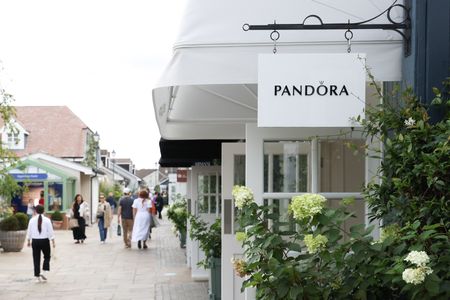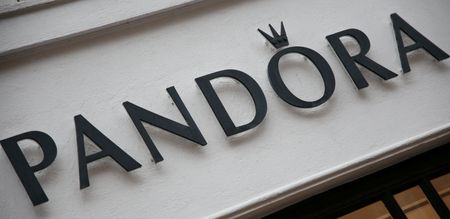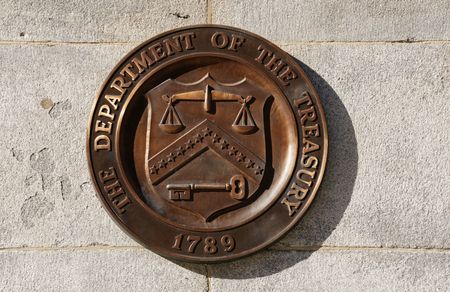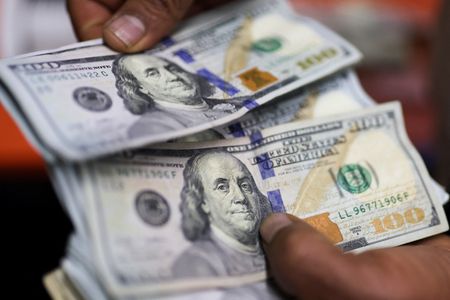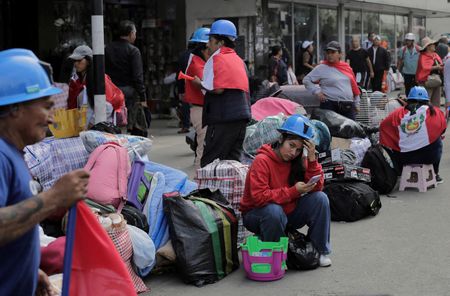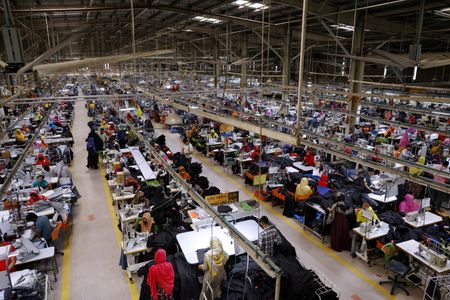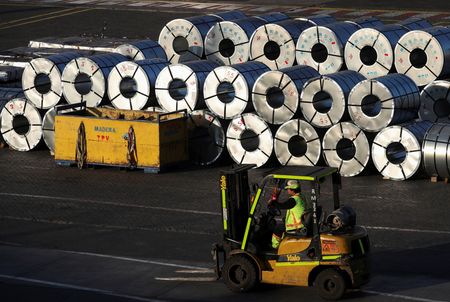By Casey Hall
SHANGHAI (Reuters) –
Danish jewellery maker Pandora is exploring ways to restructure its business in China, said two people familiar with the matter, after years of plunging sales both online and off.
The world’s largest jeweller by volume of pieces sold is in discussion with China-based funds and e-commerce partners to potentially license its brand and all of its assets, including existing inventory, for five years, said one of the people.
Pandora, like many consumer-facing multinational companies operating in the world’s second-largest economy after the U.S., has been hit hard by post-pandemic consumer malaise, exacerbated by a property crisis that has rippled through the economy.
It has also had to contend with competition from local, digital-savvy brands in a crowded e-commerce space as well as a shift in consumer preference to gold and high-value jewellery.
Pandora, in a statement to Reuters, said it recognised the need to reposition its brand in China and was working on a turnaround, saying “it will take time”. It did not address specific questions about possible restructuring in the country.
“China is the biggest jewellery market in the world, and we remain fully committed to the business there,” Pandora said.
Pandora’s China revenue tumbled nearly 80% to 416 million Danish crowns ($65.10 million) in 2024 from 1.97 billion crowns in 2019, with the country’s revenue contribution slumping to around 1% from 11% over that period, exchange filings showed.
The China business has had three chiefs since 2022. Current managing director Thomas Knudsen started in January, soon after which Pandora said it would close 50 China stores this year.
Finding a stakeholder or licence partner could be “difficult” given the trends in performance and broader consumer headwind, said Jonathan Yan, a principal at consultancy Roland Berger in Shanghai.
“I don’t think financial investors are going to be interested in this asset,” Yan said. E-commerce partner firms looking into higher-margin brand ownership “may be interested”.
A model for such a deal could be the sale of U.S. apparel retailer Gap’s China business to Baozun, one of China’s biggest e-commerce partner firms, for $40 million to $50 million in 2022.
Reuters was not able to determine the value for the potential Pandora deal.
Pandora’s e-commerce business has seen sales slide more dramatically than at physical stores, said a person with knowledge of its China business, who was not authorised to speak to media on the matter so declined to be identified.
A takeover by an operator who knows how to compete in Chinese e-commerce would therefore be positive though any turnaround will be costly to whoever foots the bill, said Yan.
“They will need to burn money and have a very innovative, approach, and even then it won’t be easy,” he said.
($1 = 6.3902 Danish crowns)
(Reporting by Casey Hall in Shanghai; Additional reporting by Helen Reid in London; Editing by Miyoung Kim and Christopher Cushing)

